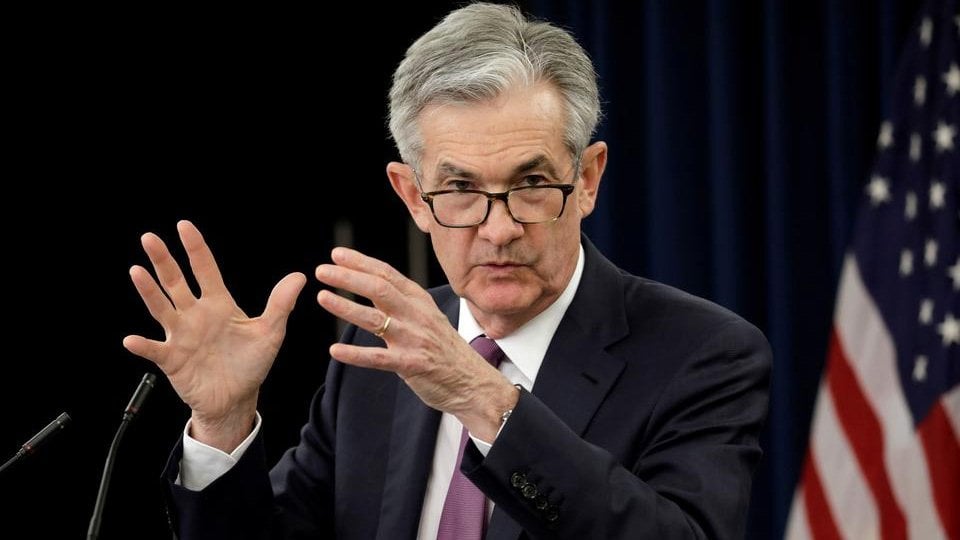Sadly we must say again, things are grim. And one of the grimmest parts of this moment is how uncertain everyone seems to be about what comes next.
That includes Fed Chairman Jerome Powell, in his remarks this week after raising interest rates more than it had since 1994. The move aimed ostensibly to curb sudden rapid inflation. But in his press conference he sounded like he was saying: “We don’t really know what will happen if we raise rates .75%, but we’re doing it anyway because we can’t think of what else to do.” Not reassuring.
As markets plummet, investors and Wall Street seem convinced of at least one thing–the future is hazy, and that’s scary. Right now we face a surprisingly large number of painful variables in the world situation. Nobody, it seems, can really factor them all out and say convincingly what comes next. Therefore it is far easier to assume that the net impact of the bad stuff going on now is even worse stuff to come. That’s why consumers are retrenching, many fear for democracy around the world–including in the U.S.–and why analysts are starting to realize it can’t be ruled out that Putin might take over Ukraine after all. There is a serious global malaise.

Two articles I’ve read this week underscore the gravity of this moment. Technologist and alarmed pundit Dave Troy brought a number of semi-apocalyptic threads together here. Don’t read it if you don’t want to think about $10 gasoline and the possibility of widespread American civil unrest. (But if you can deal with that, as you really must, watch this well-produced New York Times video about how the Proud Boys deliberately, and so effectively, incited and led much of the insurrection on January 6.) The other essay which brings much depressing clarity to the moment is our friend Andrew Keen’s latest.
Here’s how Keen begins his lament:
“Yes, those are dark clouds swirling on the horizon. The news this week has been dominated by a perfect storm of imminent political violence, a severe inflationary crisis, a neverending war in Ukraine, the meltdown of the “innovative” economics of cryptocurrency, and the general bankruptcy of many of our most cherished institutions and ideas. These clouds are systemic. The bad news, I’m afraid, is mostly connected.”
Yes everything is connected, and that’s usually the hardest thing to see. Too few of our leaders step back far enough, or if they do, admit what they see. Keen writes about the dangers posed by Steve Bannon, who sadly is pretty good at stepping back and seeing larger patterns, but for the benefit of those who would bring down the system and replace it with autocracy.

Techonomy exists in order to help our community connect dots. Our aim is to bring together disparate people and ideas in hopes that the connections between them become illuminated by proximity, or by brilliant commentary from speakers. This kind of work will be much in evidence November 13-15 in Sonoma, California.
I was overwhelmed with a sense of connectedness on my recent trip to Rwanda, to help moderate the International Telecommunication Union’s World Telecommunication Development Conference. Everything I was involved with there had to do with strategies to finally connect the 2.9 billion people in the world who are not on the internet.
Why is it so critical to connect the disconnected? What’s the bigger pattern?
If the world is to retain even a modicum of stability, it must urgently address climate change. Extreme weather is getting more disastrous and disruptive all over the planet. As weather worsens, it will become increasingly difficult for people to remain in certain hot and wet–or extremely dry–regions. The people who live in such places are generally among the world’s poorest. They are also the ones most likely to remain disconnected from digital information and modern technology.
Connection enables development. Nearly every minute, you who are reading this are in one way or another mediating or altering your life with some kind of digital tool. For us it is inconceivable to imagine living without the internet. Yet 2.9 billion people are forced to, and a billion or so more have only sporadic or insufficient connectedness.
If you’re connected, you can know what to expect from the weather. You can get a better job and make more money, to afford an air conditioner, perhaps. And you can better participate in elections and civic life to help ensure your leaders are taking care of you.
If you remain disconnected, you are very likely to give up and go somewhere else. Many of those people are likely to become migrants. But when refugees arrive en masse in other countries, social discord almost always follows. Xenophobia proves fertile soil for autocrats. And autocrats, sadly, don’t give a damn about climate change or anything except their own further power. So action on our most existential crisis gets further delayed or abandoned.
That’s a pattern I’m worried about right now. High oil prices caused by Putin’s war and the resulting inflation and government paralysis around the world exacerbates the pattern.
And lest we and I forget the most basic pattern—we are all connected as human beings. It’s a moral imperative to give everyone the same tools and opportunities.
Let us know what you think.
















